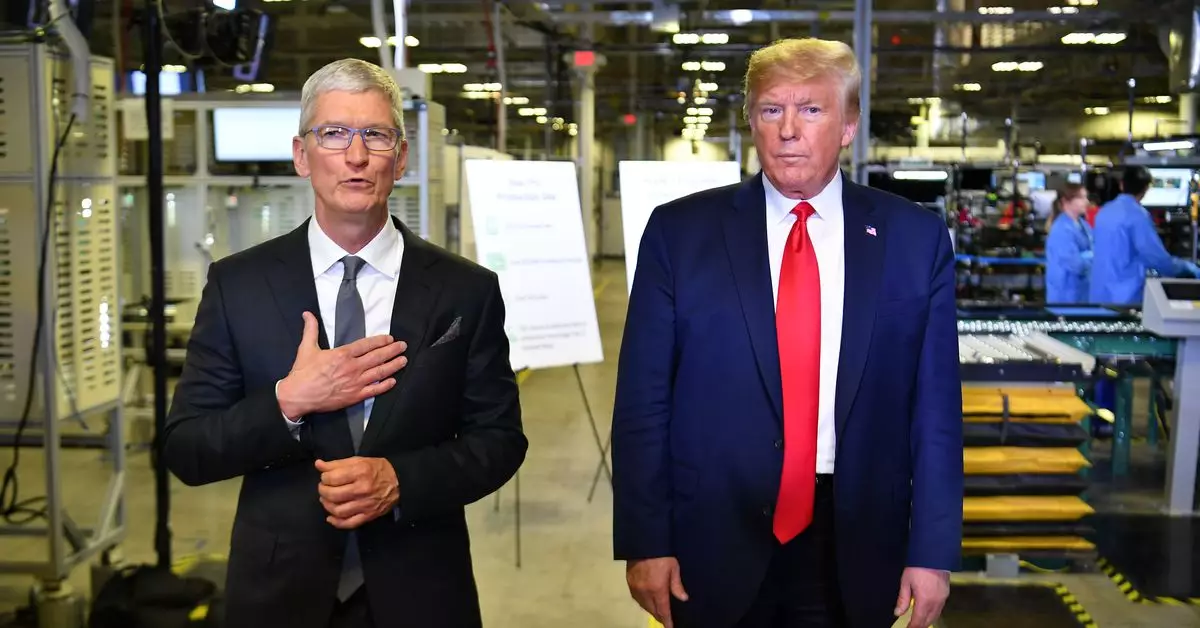In an increasingly polarized political landscape, forging effective relationships at the highest levels of government can be a formidable challenge for corporate leaders. Apple CEO Tim Cook, however, was able to establish a personal rapport with former President Donald Trump that appears to be a template for success that others in the tech industry have sought to replicate. What set Cook apart was his hands-on approach, which shunned conventional lobbying tactics in favor of more direct engagement with the president.
Cook’s strategy was marked by simplicity and specificity. Rather than delegating discussions to lobbyists or government relations teams, he chose to connect with Trump directly, engaging him through informal meals and phone calls. This method allowed Cook to present focused, data-driven insights that addressed specific concerns or opportunities without overwhelming the conversation. Such targeted interactions were pivotal, making it easier for Cook to steer discussions towards favorable outcomes for Apple, such as influencing tax policy and negotiating tariffs.
The effectiveness of Cook’s method lies in its personal touch. By emphasizing shared interests between Apple and Trump’s political agenda, Cook was able to frame conversations in a way that resonated with the president’s priorities. According to reports, this approach not only helped in deflecting some of the negative impacts of tariffs on Apple’s supply chain but also ensured that Cook maintained a favorable position in the eyes of Trump—a narrative bolstered by Trump’s claims of personally guiding Apple’s decisions.
Lessons for Other Tech Leaders
In the wake of Cook’s successful navigation of governmental relations, other tech executives have sought to emulate his approach. Companies like Boeing and FedEx have recognized the potential benefits of direct communication with political leaders, a strategy that diverges from traditional corporate lobbying. Some executives have even considered engaging with Trump through alternative channels, such as the newly formed Department of Government Efficiency, to better align with Trump’s unpredictable style.
As evidenced by interactions with other tech leaders, including Google’s Sundar Pichai and Meta’s Mark Zuckerberg, flattery has also become a tool in this new playbook. Trump has openly praised these leaders, indicating a shift in tactics where backing him publicly or celebrating his policies may lead to more favorable treatment in the long run.
The ripple effect of Cook’s successful relationship with Trump extends beyond Apple. It sets a precedent for how business leaders can leverage personal connections to navigate complex political landscapes. As corporate America continues to grapple with regulatory pressures and trade issues, the importance of these personal relationships cannot be understated.
Future leaders in the tech industry may need to consider a more personal approach to influence—not merely relying on traditional lobbying methods but engaging genuinely with political figures. The case of Tim Cook demonstrates that authenticity and direct communication can break through barriers, offering a roadmap for other executives hoping to align their corporate interests with governmental mandates. In an era where influence is a currency, the art of relationship-building may prove to be the most valuable skill of all.

